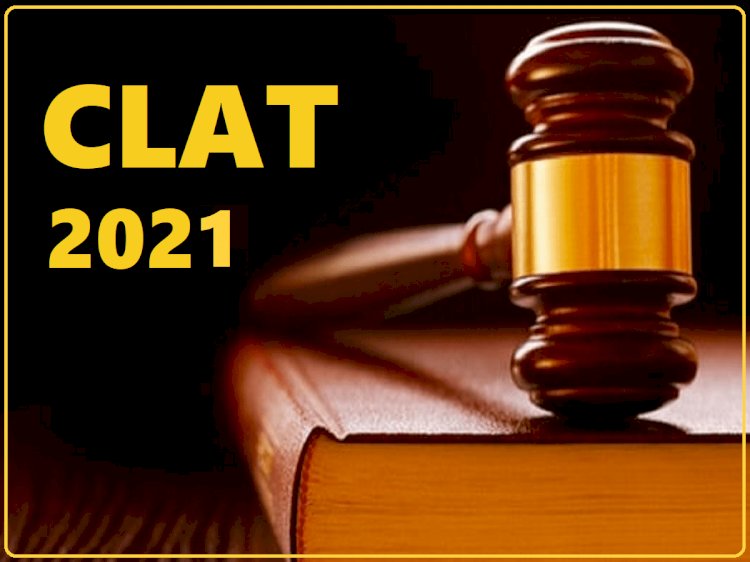The CLAT syllabus for the BA LLB degree contains all of the disciplines that a candidate will need to prepare for the CLAT 2022 exam. The candidate should consult the CLAT curriculum not only to test the relevant subjects but also to determine which subjects are more important than others.
Exam segment of the CLAT Syllabus
The CLAT syllabus for 2022 is divided into, Current affairs, Legal Interpretation, English, Logical Reasoning, Quantitative Aptitude, General knowledge.
CLAT-2022-Syllabus
Current Affairs and General Knowledge are included in the CLAT 2022 syllabus. Instead of the direct questions that were posed earlier, this component would consist of texts. The paragraphs would be 450 words long and derived from news, journals, and other sources. There would be questions based on such passages. Because such a question may encompass both the static and dynamic portions, applicants are recommended not to skip the static component entirely. Reading the newspaper on a daily basis, particularly items including any bills, judgements, or legal information, should aid in preparation for this subject.
Subjects Number of Questions Marks
English Language 28-32 questions 28 - 32
Current Affairs (General Knowledge) 35-39 questions 35 - 39
Legal Reasoning 35-39 questions 35 - 39
Logical Reasoning 28-32 questions 28 - 32
Quantitative Techniques 13-17 questions 13 - 17
Total 150 150
Syllabus for CLAT 2022: Study Materials
A candidate should obtain a standard “GK book” oriented towards CLAT in order to prepare for this segment of the exam. Newspapers, periodicals, and social articles are also useful resources for this section's preparation.
Legal Interpretation
This component will assess the candidate's interest in law, research competence, and problem-solving skills. Questions would be based on texts relating to facts or legal scenarios. The passage would contain specific rules and concepts that should be identified and applied to the questions in the appropriate manner.
- Indian Constitution- Indian Penal Code
- Indian Contract Act- Family Law
- Law of Torts- Legal fundamentals and terms
- Legal Maxims- Important Landmarks, Supreme Court Judgements
Quantitative Skills
Brief sets of facts or propositions, graphs, or other textual, graphical, or diagrammatic representations of numerical information will be included in the Quantitative Technique or Maths portion, followed by a series of questions. The questions will be in the form of Data Interpretation, which will challenge applicants to deduce information from a paragraph and respond accordingly.
- Mensuration- Areas, Volumes
- Commercial Mathematics- Interest, Profit, loss and Discounts, Percentage, Partnership
- Modern Mathematics- Permutation & Combination Probability, Clocks & Calendars
- Data Interpretation- Graphs, Charts
- Arithmetic- Number system, H.C.F and L.C.M, Logarithms and, Functions, Fractions and decimals, Roots and Indices, Simplification, Ratio and proportions, Time and Work, Average
Reasoning logically
The logical reasoning portion is designed to assess a candidate's ability to recognise patterns, logical connections, and correct faulty arguments.
- Statement & Assumptions- Statement & Conclusions
- Statement & Arguments- Statement & actions
- Assertion – Reason- Syllogism
- Number test- Direction and distance test
- Coding and Decoding- Blood Relationships
- Ranking- Analogy
English
The candidates' English skills will be tested through comprehension passages in the English segment. Students will be assigned 450-word readings that could be fiction or non-fiction, contemporary or historical, and so on. Candidates will be assessed on their comprehension of the passage and its major idea, as well as the definitions of vocabulary used in it. Candidates must understand the main topic stated in the passage, as well as any counter-arguments made in the passage, in order to pass this section.
- Vocabulary- Synonyms, Antonyms, Homonyms, Word definitions, Analogies
- Proficiency- Idioms and Phrases, One-word substitution, Sentence improvement & rearrangement, Fill in the blanks with suitable words, Subject-Verb Agreement, Conditionals, Noun, Pronoun, Articles & Conjunction, Adjective and Determinants
- Usage Errors- Grammatical errors- tense, voice, preposition usage, speech errors, Correct Spelling, Spotting errors, Inappropriate usage of words
- Comprehension- On the basis of the passage provided, various questions will be asked. It is advisable to first go through the questions first and then read the passage. Doing this will help them to point out the answers and gather information relating to the questions.



 Local BangaloreTeam
Local BangaloreTeam 









